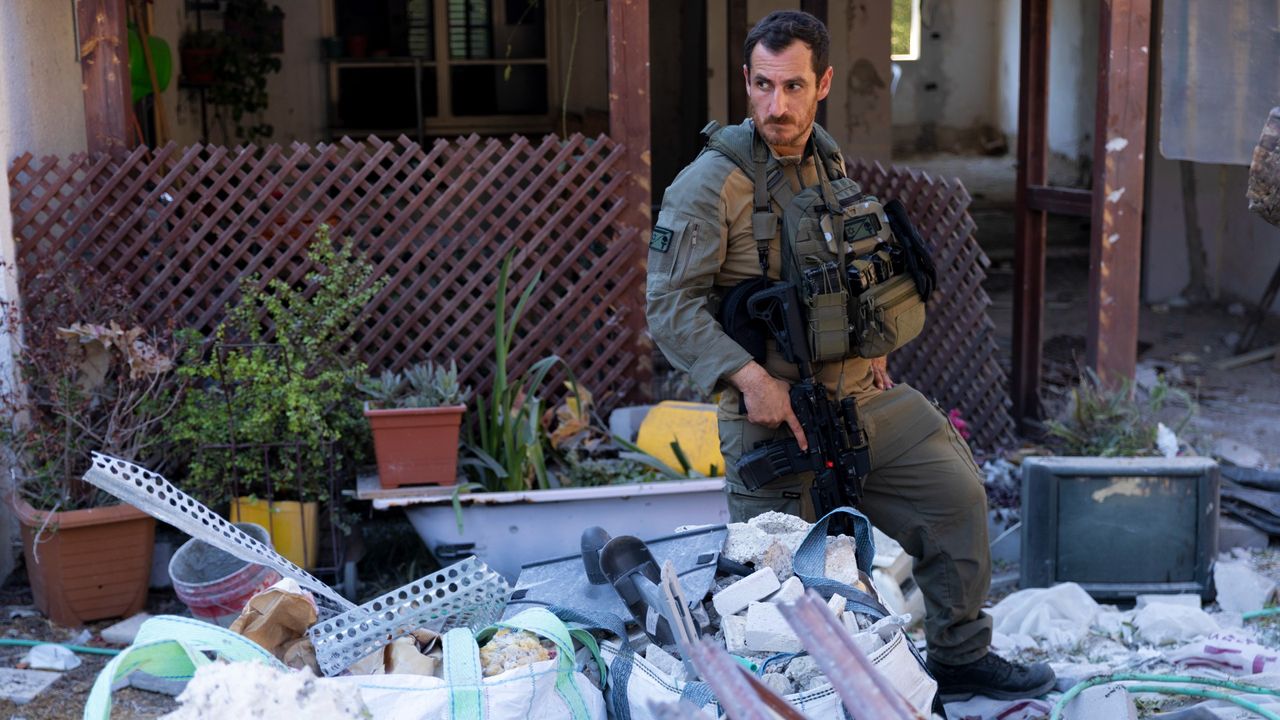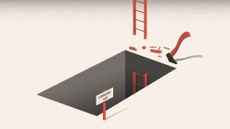Can Israel fund a war on two fronts?
Benjamin Netanyahu says he won't back down against Hezbollah, but analysts suggest his economy can't take it

Almost one year on from the 7 October terrorist attacks by Hamas, Israel is on the verge of all-out war with Lebanon, leading to the prospect of the country fighting on two fronts.
Benjamin Netanyahu has vowed to continue the deadly airstrikes on Hezbollah targets in Lebanon that have killed hundreds of people and displaced tens of thousands over the last few days. Hezbollah is also continuing its rocket attacks on northern Israel. At the same time, there is no let up in the war in Gaza, with Israeli forces still launching attacks on Hamas positions in the territory.
Prime Minister Netanyahu says he won't back down until his goals are achieved, but military analysts are sceptical the country can afford a war on two fronts.
Subscribe to The Week
Escape your echo chamber. Get the facts behind the news, plus analysis from multiple perspectives.

Sign up for The Week's Free Newsletters
From our morning news briefing to a weekly Good News Newsletter, get the best of The Week delivered directly to your inbox.
From our morning news briefing to a weekly Good News Newsletter, get the best of The Week delivered directly to your inbox.
What did the commentators say?
"This war seems like the mother of all wars," said Dany Bahar, a senior fellow at the non-profit think tank the Center for Global Development. And "that means it is expensive", he told The Washington Post. The price paid by the economy has been "often lost in the turmoil and tragedy of the past year", said the newspaper. Israel's credit score has been downgraded, its GDP has fallen "sharply" and tourism is down 75% since Hamas's attack last year.
Earlier this month, Finance Minister Bezalel Smotrich had to request an emergency deficit increase. "Israeli economists are resigned to things getting worse," said The Economist. Any wartime government must fund its military, usually through deficit spending, but also stay "robust enough to clear its debts when peace arrives", meaning the "economy rests on a knife edge".
Israel's educated workers are leaving the country "in droves" as the war in Gaza has "ground" its economic sector to a standstill, said Adrian Finnigan, on Al Jazeera's "Counting the Cost". The economy – "once seen as an entrepreneurial engine" – is losing the trust of the international community. More than 46,000 businesses have closed and it is "challenging" to attract new talent to the country.
But this is not necessarily damaging the economy, said Eyal Winter, an economics professor at Lancaster University. Many of them are in the tech sector and can do their job from anywhere in the world. "They don't resign, they don't take a leave of absence," he said. They simply continue their work online.
War could even benefit the economy "if conducted wisely", Israeli journalist Meirav Arlosoroff said in Haaretz. The threat from Hamas "has been lifted" and will not surface "for years to come", while "a 'good' war" with Hezbollah would probably leave it "battered and bruised enough" to stop it being a concern in the north.
There are two provisos, however: first, that no economic crisis arises in the meantime, and second, that any war with Hezbollah follows the example of the 2006 Lebanon war, a "relatively short conflict that ended decisively and damaged Hezbollah's military capabilities".
What next?
Arlosoroff's hopes for a short war look unlikely. Israel would have a true fight on its hands if full war broke out in Lebanon, as Hezbollah has a much more sophisticated military operation than Hamas, Yoel Guzansky, who served on Israel's National Security Council, told CNN. "Hezbollah is not Hamas."
The continued fighting means the mood is "pessimistic", despite ongoing diplomatic efforts for a ceasefire, said BBC. Netanyahu is under pressure from Israeli hard-liners to continue the attacks, while Hezbollah has said it will not stop until a ceasefire has been declared in Gaza.
Ultimately, it is not the economy that will decide whether Israel fights on two fronts, said Winter, but whether the government has the support of the people. "And you may be surprised by the Israeli support to the war against Hezbollah."
Sign up for Today's Best Articles in your inbox
A free daily email with the biggest news stories of the day – and the best features from TheWeek.com
Elizabeth Carr-Ellis is a freelance journalist and was previously the UK website's Production Editor. She has also held senior roles at The Scotsman, Sunday Herald and Hello!. As well as her writing, she is the creator and co-founder of the Pausitivity #KnowYourMenopause campaign and has appeared on national and international media discussing women's healthcare.
-
 Swiss bliss: Chenot Palace Weggis takes wellness to the next level
Swiss bliss: Chenot Palace Weggis takes wellness to the next levelThe Blend Heath retreat on Switzerland's Lake Lucerne offers a mid-winter reset
By Felix Bischof Published
-
 Earth's mini-moon was the moon all along
Earth's mini-moon was the moon all alongUnder the radar More lunar rocks are likely floating in space
By Devika Rao, The Week US Published
-
 Crossword: February 4, 2025
Crossword: February 4, 2025The Week's daily crossword
By The Week Staff Published
-
 Is Ron DeSantis losing steam in Florida?
Is Ron DeSantis losing steam in Florida?Today's Big Question Legislative Republicans defy a lame-duck governor
By Joel Mathis, The Week US Published
-
 What's the future for foreign aid?
What's the future for foreign aid?Today's Big Question President Trump's US aid freeze could change the humanitarian landscape for good
By Jamie Timson, The Week UK Published
-
 What's the future of FEMA under Trump?
What's the future of FEMA under Trump?Today's Big Question The president has lambasted the agency and previously floated disbanding it altogether
By Justin Klawans, The Week US Published
-
 What could happen to the US food supply under Trump's isolationist agenda?
What could happen to the US food supply under Trump's isolationist agenda?TODAY'S BIG QUESTION The president's plan to deport undocumented workers and levy massive taxes on international imports might have repercussions on your dinner plate
By Rafi Schwartz, The Week US Published
-
 Trump proposal to 'clean out' Gaza gets cool reception
Trump proposal to 'clean out' Gaza gets cool receptionSpeed Read U.S. allies Jordan and Egypt rejected President Donald Trump's suggestion that Palestinians leave Gaza
By Peter Weber, The Week US Published
-
 The new JFK, RFK and MLK files: what to expect
The new JFK, RFK and MLK files: what to expectThe Explainer Will the release of documents on the assassinations that 'shattered the 60s' satisfy the conspiracy theorists?
By Chas Newkey-Burden, The Week UK Published
-
 What have we learned from week one of Trump 2.0?
What have we learned from week one of Trump 2.0?Today's Big Question After five days in power, Donald Trump has wasted little time pushing boundaries
By Rafi Schwartz, The Week US Published
-
 Why Cuba and 3 other countries are on the State Sponsors of Terrorism list
Why Cuba and 3 other countries are on the State Sponsors of Terrorism listThe Explainer How the handful of countries on the U.S. terrorism blacklist earned their spots
By David Faris Published